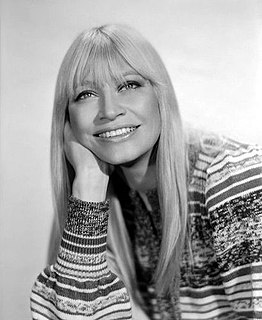A Quote by Philip Zimbardo
Research shows that the deciscions of a group as a whole are more thoughtful and creative when there is minority dissent than when it is absent.
Related Quotes
Majority decisions tend to be made without engaging the systematic thought and critical thinking skills of the individuals in the group. Given the force of the group's normative power to shape the opinions of the followers who conform without thinking things through, they are often taken at face value. The persistent minority forces the others to process the relevant information more mindfully. Research shows that the deciscions of a group as a whole are more thoughtful and creative when there is minority dissent than when it is absent.
One has to give minority groups a kind of reward, an emotional reward, that it is worthwhile assimilating to this particular majority group. And if this majority group looks down on itself ... If a minority group is not given some pride in assimilating to the culture of another group then the process is very difficult.
The fact that there are singer-songwriters dealing with substantive issues is encouraging. It's important for young people to perceive that there are acceptable avenues of dissent, because we live in a world where dissent is hard-pressed; treated as if it were unpatriotic. I've always liked the concept of the loyal opposition. It allows for dissent to be a respectable part of the whole.
Setting aside the vast herd which shows no definable character at all, it seems to me that the minority distinguished by what is commonly regarded as an excess of sin is very much more admirable than the minority distinguished by an excess of virtue. My experience of the world has taught me that the average wine-bibbler is a far better fellow than the average prohibitionist, and that the average rogue is better company than the average poor drudge, and that the worst white-slave trader of my acquaintance is a decenter man than the best vice crusader.
We must dissent from the indifference. We must dissent from the apathy. We must dissent from the fear, the hatred and the mistrust. We must dissent from a nation that has buried its head in the sand, waiting in vain for the needs of its poor, its elderly, and its sick to disappear and just blow away. We must dissent from a government that has left its young without jobs, education or hope. We must dissent from the poverty of vision and the absence of moral leadership. We must dissent because America can do better, because America has no choice but to do better.
Disagreement produces debate but dissent produces dissension. Dissent (which come from the Latin, dis and sentire) means originally to feel apart from others. People who disagree have an argument, but people who dissent have a quarrel. People may disagree and both may count themselves in the majority. But a person who dissents is by definition in a minority. A liberal society thrives on disagreement but is killed by dissension. Disagreement is the life blood of democracy, dissension is its cancer.
When I was living in Mexico, I started reassessing my drawing style, and plunged into a period of doing exercises and research to develop a new way to draw. The result was a style that implies more than it shows, and so, ironically, feels more "true" to the scene I want to draw than a style that is more specific. It seems to me that the reader's imagination is able to fill in the gaps more effectively than I ever could. Plus it's a lot faster and more fun to do.




































